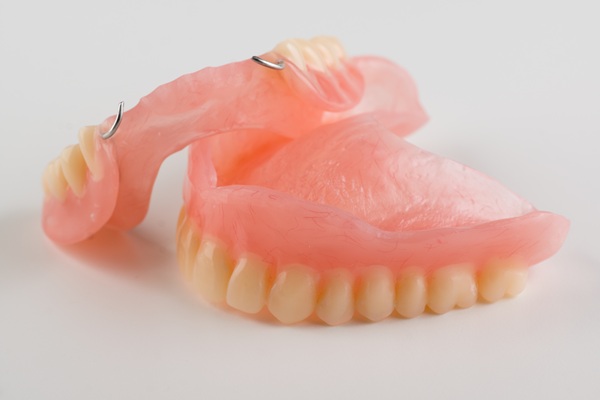Sleep Apnea Sleep Disorder and Treatments

Have you been diagnosed with sleep apnea? You are not alone. Sleep apnea, or Obstructive Sleep Apnea (OSA), is a common disorder affecting millions of Americans. The good news is that it is well researched, and the medical community knows the risks and how to treat it.
Sleep apnea occurs when the muscles holding open your airway relax during sleep. This relaxation stops the normal breathing process. This sets off alarm bells in your brain to wake you up and resume breathing.
When your brain wakes you up to start breathing again, you usually are not conscious of it, and so it can happen multiple times per night, preventing important REM sleep.
What are the risks of leaving sleep apnea untreated?
Hypertension is a common term that you might be familiar with. It is a condition where your blood pressure is high for long periods of time. When you do not get restful sleep, your blood pressure increases because your body is in a state of stress.
This leads to other issues like atherosclerosis (plaque in your arteries), heart attacks and strokes. Your doctor will be able to pinpoint this type of hypertension because, without sleep apnea, your blood pressure normally lowers quite a bit while you sleep.
The increased stress of sleep apnea and high blood pressure over time can cause small breaks in your blood vessels, which must be repaired by tools located in your bloodstream. This repair process creates atherosclerosis, or plaque, which can break off and travel to smaller blood vessels and become stuck. This stops blood flow and can suffocate important organs. When this happens in your brain, it results in a stroke.
If that same clot travels to a vessel in your heart, it can lead to a heart attack. Therefore, getting good sleep can help decrease your risk of heart attack, and sleep apnea can increase it. Type 2 diabetes (T2DM) has also been linked to sleep apnea and poor sleep. This is related to the stress your body endures with sleep apnea. In a prolonged state of stress, our bodies have evolved to store extra sugar and energy.
Heart failure is when the muscles of the heart are no longer strong enough to pump the huge amount of blood circulating through the body. Patients with heart failure experience trouble breathing, they cannot exercise as well and their risk of clots (stroke and heart attack) go up. You probably guessed it, but all that increased stress that causes the other issues on this list can also wear out your heart.
The lack of sleep and fatigue associated with sleep apnea makes it harder to exercise and eat appropriately, plus your body creates more insulin while in this state. Prolonged exposure to insulin is known to cause weight gain in people without diabetes (type 2 diabetics are also at risk if they get too much for too long).
Each of these six chronic medical issues is itself tied to depression, and it should come as no surprise that sleep apnea also contributes.
Sleep apnea treatments
- CPAP: A continuous positive airway pressure machine is typically the treatment of choice for sleep apnea
- BiPAP: A bilevel positive airway pressure machine is slightly different from a CPAP because it changes pressure when you exhale; this makes exhalation easier for certain patients
- Dental appliance: Your dental can fit a mouth guard type device that thrusts your jaw forward during sleep to keep the airway open
- Weight loss: This is recommended whether you experience sleep apnea or not, as weight loss has many health benefits
Questions?
If you have any questions regarding sleep apnea and how it can be treated, give us a call. We are happy to help in any way we can.
Request an appointment in our Milwaukee office here: https://www.esdmke.com.
Check out what others are saying about our services on Yelp: Read our Yelp reviews.
Related Posts
A cosmetic dentist often hears concerns about whitening discomfort and can explain why sensitivity sometimes increases during treatment. Whitening products lift stains by allowing active ingredients to move through enamel, which can temporarily irritate the tooth's inner structures. Understanding what causes sensitivity and how to reduce it helps patients pursue a brighter smile more comfortably.Whitening…
Dentures are a widely used solution for individuals who have lost multiple teeth. However, despite their long history and proven effectiveness, several misunderstandings about dentures persist. These misconceptions can lead to unnecessary hesitation or to people not pursuing the care they need, affecting their oral health and comfort. Clarifying these misunderstandings can help those considering…
Routine dental cleanings help maintain the health of your teeth and gums by removing plaque and tartar buildup. However, practicing good oral hygiene at home is essential to prevent oral health issues between visits. Taking proper care of your teeth daily ensures a bright, healthy smile over time.Brushing teeth at least twice daily helps keep…
A dental implant restoration is a significant investment in your oral health. This tooth replacement option offers durability while improving the function and appearance of your smile. However, there are ways how you can ensure the long-term success and integrity of the restoration.Keeping good oral hygiene is important for the longevity of a dental implant…


